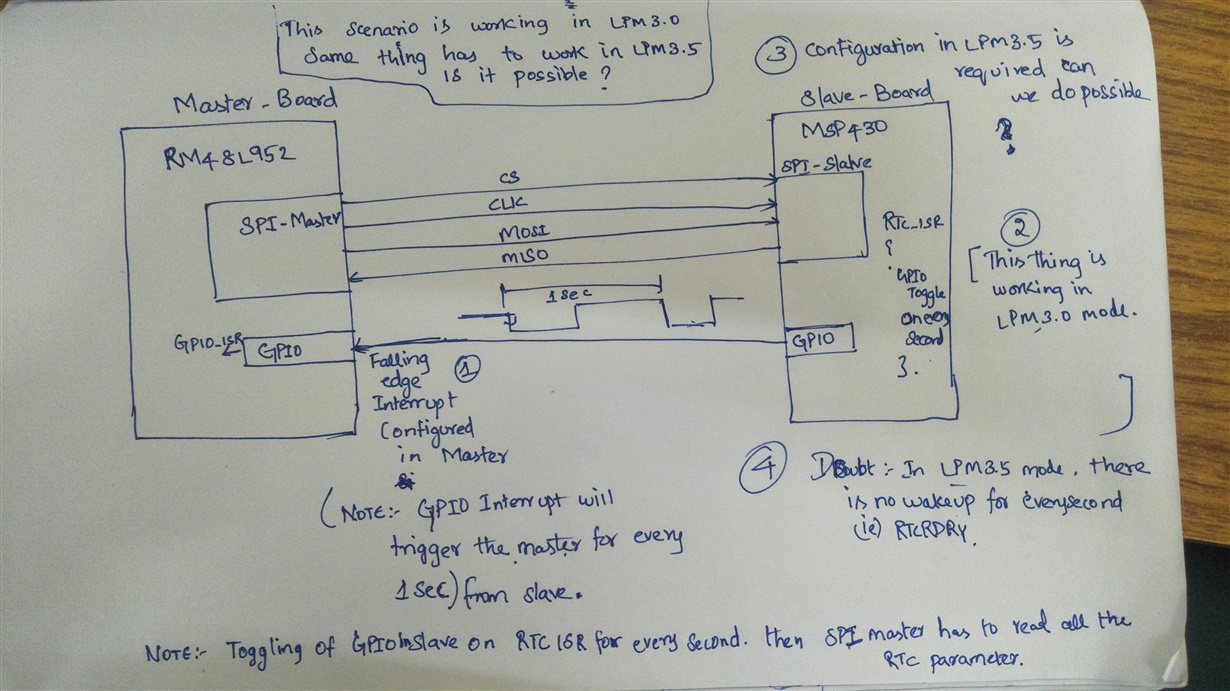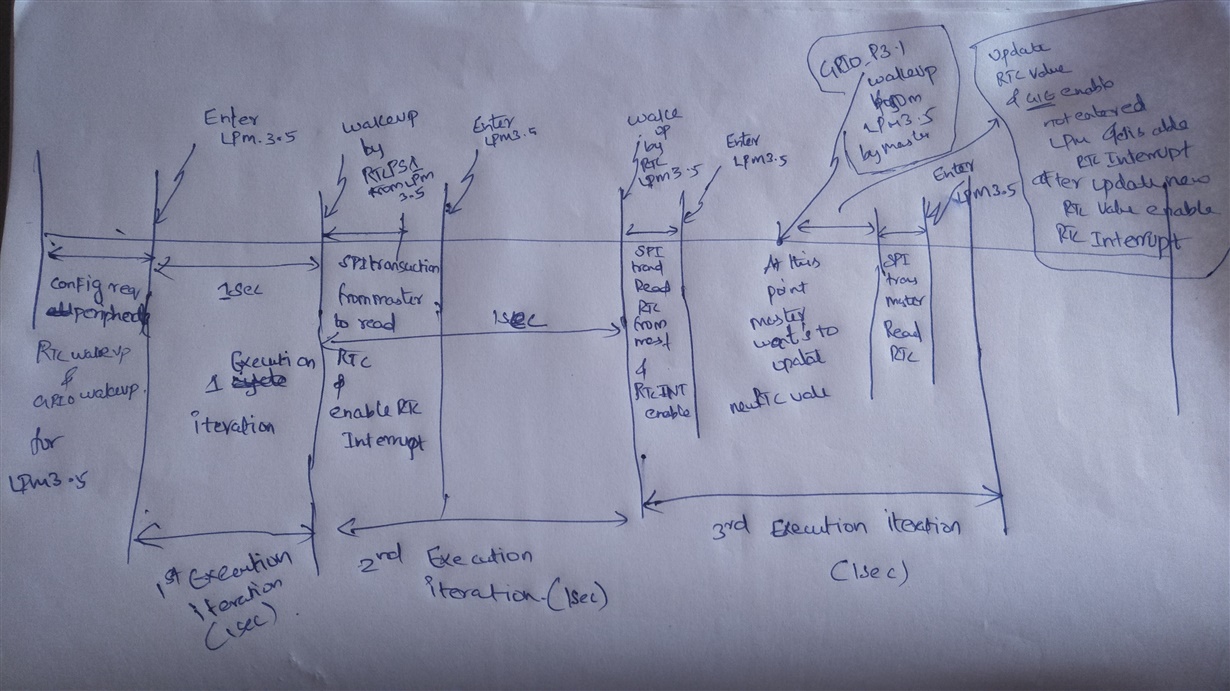Other Parts Discussed in Thread: RM48L952
Tool/software: Code Composer Studio
Dear Sir,
I have two boards, one is Master board (RM48L952) and one more is slave board (MSP430).
In your project main agenda is to read the RTC value from the Slave board to Master board through SPI communication for every second on RTC_READY interrupt. I have to configure master board SPI as Master and Slave board as SPI Slave.
I have to configure RTC_C Module as LPM3.5 then , read the RTC value from the Slave board to Master board through SPI communication for every second on RTC_READY interrupt is it possible?
Can you please help me.
Regards,
Anand Kumar N S



